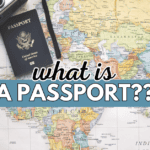What is a Passport? An Essential Guide for Global Travelers
What is a passport? A simple question with an intriguing history.
In today’s interconnected world, the small booklet you carry around while traveling has become more than just a form of identification. It represents your identity as a global citizen and allows you to explore new horizons.
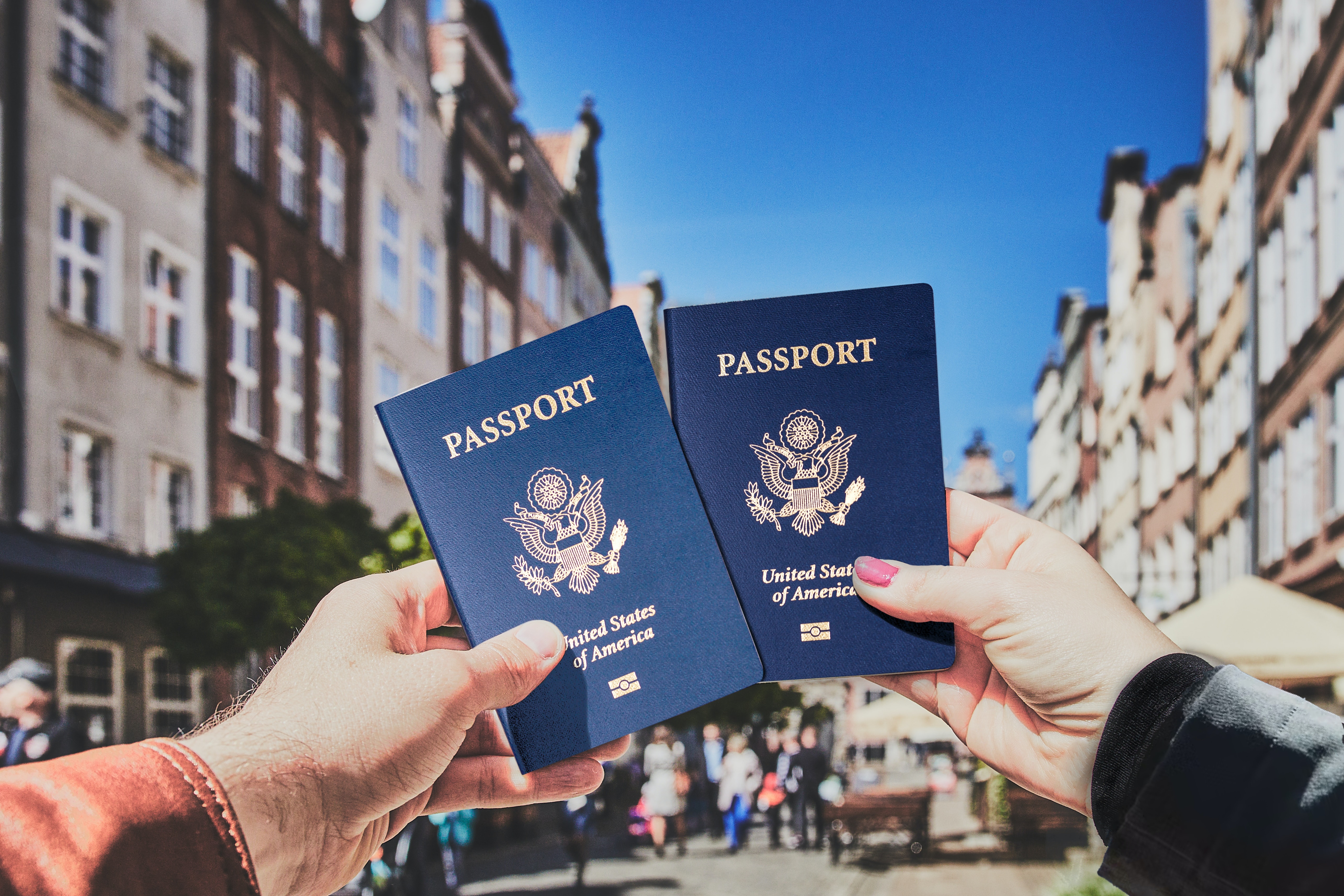
A passport is an official government document that verifies a person’s identity and nationality. It serves as an international travel document, allowing the holder to travel across borders and enter foreign countries.
A passport usually includes important information such as the holder’s name, date of birth, and photograph. It also contains details about the issuing country and its government.
A passport may often include additional features like biometric data such as fingerprints or facial recognition. The primary purpose of a passport is to allow individuals to travel internationally.
When traveling across borders, it is important to always have your passport with you, as it serves as proof of your identity and citizenship. Most countries require visitors to present a valid passport upon arrival at their border control point or airport immigration office.
Without one, you risk being denied entry into the country or may face significant delays at border crossings. In addition to facilitating international travel, passports are also used for other purposes, such as opening bank accounts or applying for visas online.
Some countries even require their citizens to hold valid passports before they can apply for certain government services like social security benefits or driver’s licenses. Overall, passports play an essential role in enabling global mobility while ensuring that individuals’ identities are verified by appropriate authorities.
Quick Links:
- Origin of Passports
- The Evolution of Passports: A Journey Through Time
- Implications of Standardized Passports
- The Growing Demand for Passports: What’s Driving It?
- The Importance of Reliable Proof-of-Citizenship Documents
- The Importance of Having a Reliable Proof-of-Citizenship Document
- Citizenship by Investment Programs: A Golden Ticket to a New Passport
- Passport Essentials for First-Time Travelers
- FAQs in Relation to What is a Passport?
- Conclusion
Origin of Passports
But have you ever wondered about the origins of this essential travel document?
Dive into our comprehensive guide on “What is a passport?” to uncover its fascinating evolution from medieval safe-conducts to modern biometric booklets. Along the way, we’ll discuss how standardized passports have made international travel easier yet raised concerns for some countries.
We will also examine the growing demand for passports worldwide and delve into government reliance on these documents for verification purposes. Lastly, learn about Citizenship By Investment programs offered by various nations and get expert advice on applying for your first passport or maintaining proper documentation when traveling abroad.
Embark with us on this enlightening journey through time and borders – because understanding what lies behind that little booklet in your pocket can make all the difference between being an ordinary traveler and an informed globetrotter.
The Evolution of Passports: A Journey Through Time
Are you set to traverse a path through the past? Let’s explore passports’ fascinating history and development, from their biblical origins to the establishment of a worldwide standard in 1920 by none other than the League of Nations. Buckle up.
Biblical Era References to Travel Documents
Travel documents have a long history, even extending back to biblical times. In fact, there are references in the Bible about granting safe passage through foreign lands.
Sauf Conduits and Their Role in Medieval Diplomacy
Moving forward into medieval times, we find “sauf conduits,” which were essentially letters issued by monarchs or governments allowing travelers safe passage for negotiation purposes.
The 1920 International Conference on Passports
The game-changer came when the League of Nations decided it was time for some global standardization, leading to our modern-day passport system.
Implications of Standardized Passports
Alright, let’s dive in. We’ll explore the pros and cons of standardized passports, which have revolutionized international travel, while raising some concerns along the way. Are you ready to learn more?
Improved Protection for Travelers
First up, a major benefit: traveler protection. The UN’s ICAO has established international guidelines for passport security elements that help guard against fraud and identity theft.
Efficient Border Crossings
Gone are the days of lengthy border checks. The standardization of passports enables quicker border crossings as immigration officers can easily verify your information using their systems.
Concerns Regarding Western Control
Now, let’s discuss some drawbacks associated with standardized passports. Critics argue that Western countries hold too much influence over regulations governing these documents – potentially leading to misuse or exploitation by powerful nations. Dive deeper into this topic here.
- Additionally, some travelers face difficulties obtaining visas due to political tensions between their home country and destination countries.
- Last but not least, standardized passports may not account for unique cultural identities, such as indigenous peoples or stateless individuals.
Despite these concerns, standardized passports have undoubtedly transformed the way we travel and connect with one another across borders. No matter your level of experience, it’s critical to be aware of this system’s effects on our interconnected planet.
The Growing Demand for Passports: What’s Driving It?
Let’s dive into the world of passports.
As our planet becomes more interconnected, there’s been a surge in demand for these essential travel documents.
Passport statistics in the United States reveal that 2016 was a record-breaking year, with over 18 million passports issued.
Study Abroad Students Driving Passport Demand
The surge in study abroad programs is a significant contributor to this growth.
In recent years, there has been a tremendous increase in the number of students seeking international education experiences, all of whom require passports for their global adventures.
Recent statistics show a remarkable rise in the number of American students relocating overseas for their studies.

Career Opportunities Prompting International Relocation
Moving on to the professional realm:
In today’s globalized economy, many individuals are pursuing career opportunities beyond their home country’s borders.
Research suggests that international job prospects are expanding across various industries.
The Importance of Reliable Proof-of-Citizenship Documents
So, why are passports so crucial in our modern world?
Well, as we increasingly travel and interact with different cultures, having reliable proof of citizenship becomes essential.
This ensures smooth border crossings and helps governments verify the identity of travelers for safety purposes.
Recent news highlights the importance of secure travel documents in preventing crime and terrorism.
Navigating Country-Specific Requirements
Last but not least:
Different countries have varying passport requirements and restrictions, such as visa regulations or entry conditions.
The Importance of Having a Reliable Proof-of-Citizenship Document
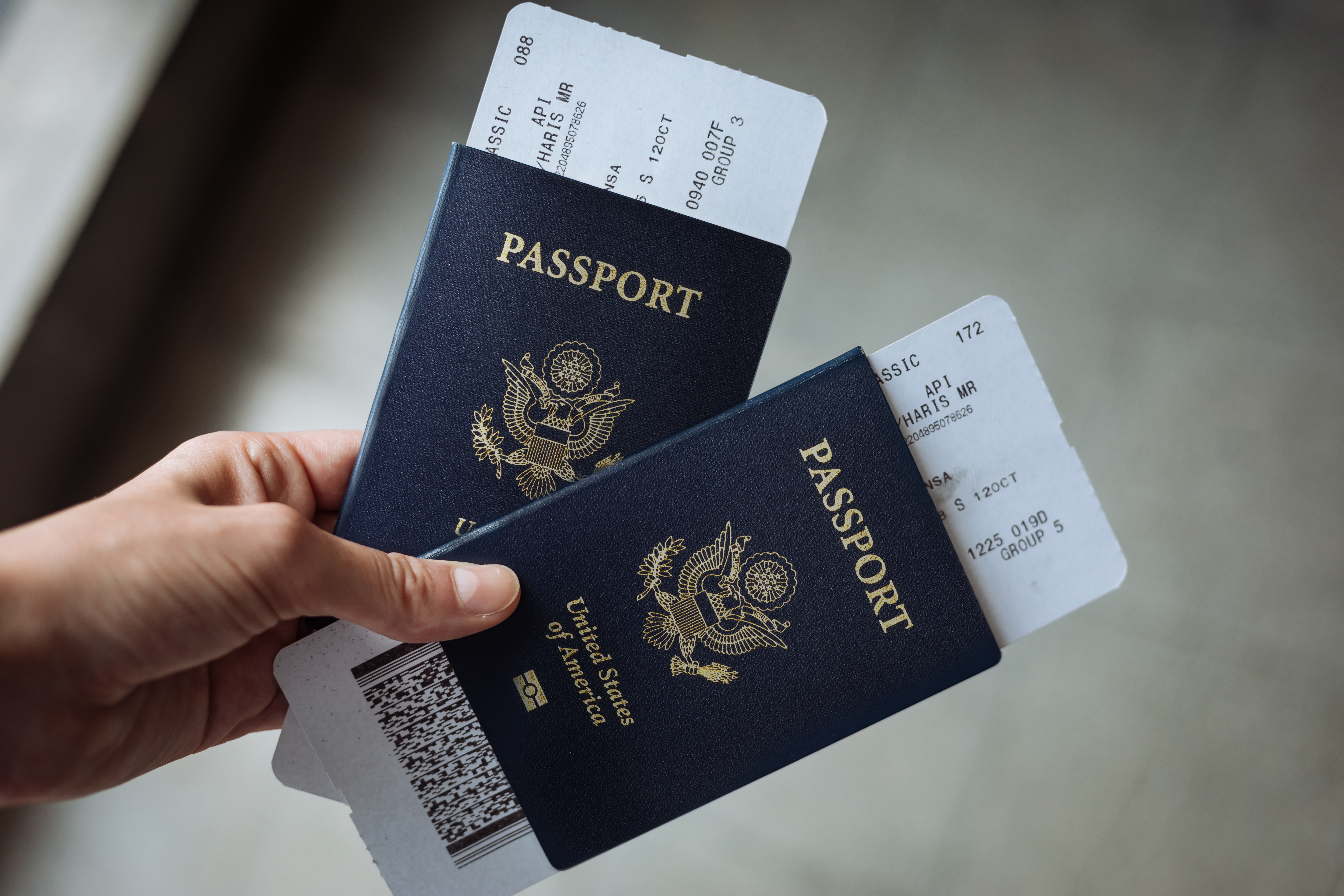
Having a reliable proof-of-citizenship document is essential in the current interconnected world. It’s your ticket to exploring new countries, experiencing different cultures, and making unforgettable memories.
But why is it so crucial?
For starters, a proof-of-citizenship document, such as a passport, is necessary for international travel. Without a passport, traveling beyond one’s home nation is impossible; also, it serves as an important form of identification in multiple contexts, such as opening a bank account or applying for employment. Additionally, it serves as a form of identification, which can be helpful in various situations, such as opening a bank account or applying for a job.
Citizenship by Investment Programs: A Golden Ticket to a New Passport
Alright, let’s talk about an intriguing aspect of the passport world.
Citizenship by investment programs is becoming increasingly popular among wealthy individuals seeking new opportunities and global mobility. But what exactly are these programs?
A Citizen by Investment Program (CIP), also known as Economic Citizenship or Citizenship by Investment (CBI), is a program offered by certain countries to attract foreign investment and stimulate their economies.
Individuals can acquire citizenship or residency rights by making a significant financial contribution to the country. This contribution can take the form of a donation to a national development fund or investments in specific sectors.
In exchange, applicants and their families gain the rights and benefits associated with citizenship or residency, including the ability to live, work, and study in the country and sometimes travel privileges to other countries.
These programs are typically offered by smaller or developing countries. The specific requirements, investment options, and benefits vary by country, so thorough research is necessary before participating.
It’s important to be aware that these programs have faced criticism due to concerns about potential misuse, money laundering, tax evasion, and security risks.
Therefore, it’s advisable to evaluate the legitimacy of the programs and seek advice from legal and financial professionals before applying for citizenship or residency.
Examples of Countries Offering Citizenship by Investment
- St. Kitts & Nevis: Known as the pioneers of this concept, they launched their program back in 1984.
- Antigua & Barbuda: With just five years under its belt, this Caribbean nation is already making waves with its CIP options.
- Malta: Located within the European Union, Malta offers an enticing opportunity for those looking to gain EU citizenship through investment.
- Cyprus: Another EU member state, Cyprus, offers an expedited process for investors seeking citizenship.
Economic Impact of Citizenship by Investment Programs
These investment-driven citizenship plans have demonstrated to be a beneficial source of revenue for nations looking to grow their economies and draw in outside capital. For example, St. Kitts & Nevis program has contributed significantly to the nation’s GDP since its inception.
However, critics argue that these initiatives may sometimes encourage corruption or even money laundering. Transparency International, a global anti-corruption organization, has raised concerns about the potential misuse of such programs and called for increased transparency and regulation.
In conclusion, citizenship by investment programs offers wealthy individuals an alternative route to obtaining passports while providing economic benefits for host nations. But they also come with their share of controversies and challenges.
Passport Essentials for First-Time Travelers
Let’s dive into the world of passports and explore essential information to help first-time travelers, study-abroad students, ex-pats, digital nomads, and travel enthusiasts easily navigate international waters.
Applying for a New Passport
To start your journey in the United States, you must apply for a new passport. Gather the necessary documents, like proof of citizenship (e.g., birth certificate) and identification (e.g., driver’s license), and fill out Form DS-11 either electronically or manually; refrain from signing it. Then present all the materials in person at an authorized acceptance location.
Renewing an Existing Passport
If you’re already part of the jet-setting club but need to renew your passport before venturing further afield, follow these simple steps:
- Determine if you’re eligible for mail-in renewal by checking this list of criteria.
- If yes: complete Form DS-82; if no: revisit applying as above.
- Mail all required documents along with payment. VoilÃ. Your renewed ticket to global adventures is on its way.
Navigating Country-Specific Requirements
Before you pack your bags and head to the airport, it’s essential to research country-specific requirements for entry.
The US State Department website is an excellent resource for learning about visa and vaccination requirements for different countries, making it an excellent starting point for travel planning.
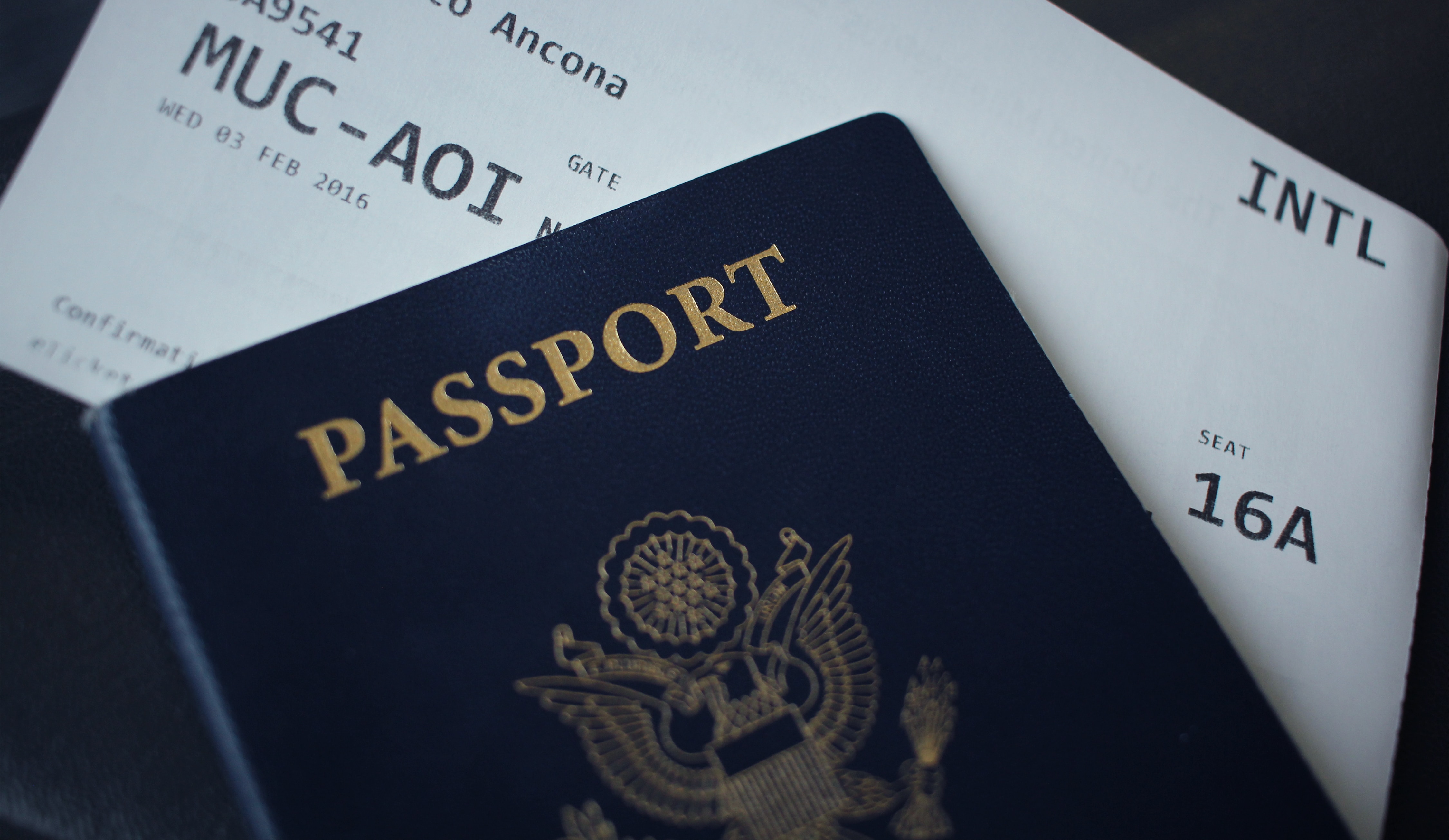
Bonus Tip: Keep Your Passport Safe.
Last but not least, always remember to safeguard your passport while traveling abroad. Consider using a secure holder, make photocopies (or take photos) of crucial pages, and store them separately from the original document in case of loss or theft.
FAQs in Relation to Passports?
What is the definition of a passport?
A passport is a document issued by the government that confirms the identity and nationality of the holder, mainly for use in international travel. It includes personal details like name, date of birth, photo, and a distinct identification number.
What information does a passport provide?
Passports typically provide essential personal details about the holder: full name, nationality, date and place of birth, gender, physical appearance (photograph), signature, and a unique identification number. Additionally, they may include machine-readable zones or embedded electronic chips with biometric data.
Are passports necessary?
Passports are generally required for international travel to verify one’s identity and citizenship at border controls. They serve as proof that you have permission from your home country to enter other countries legally. However, some regional agreements allow limited travel without passports among member nations.
When did passports become necessary?
The use of passports became more widespread after World War I when the League of Nations’ 1920 conference introduced standardized documents for international travelers. The growth in global tourism further increased their necessity over time.
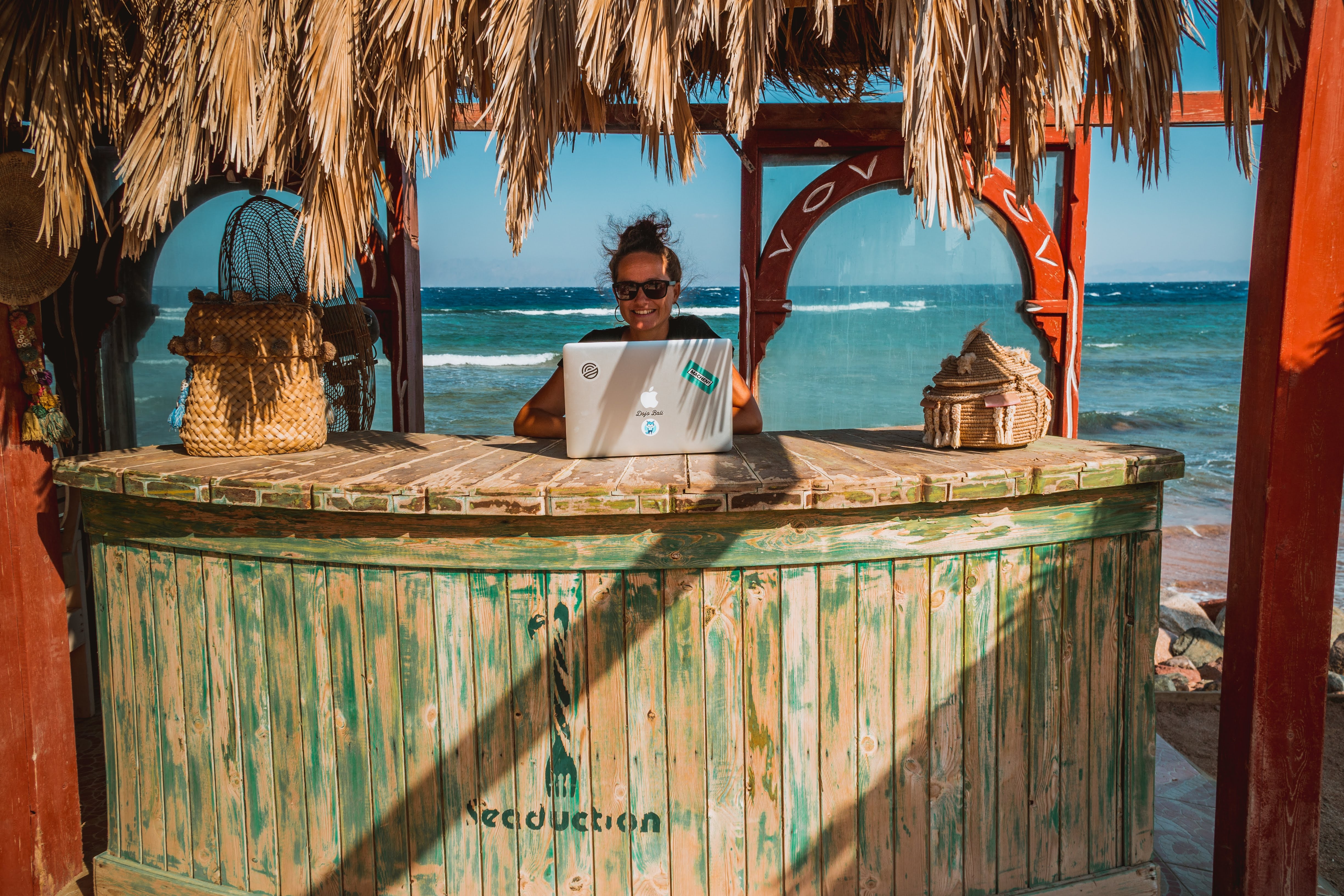
Conclusion
Passports have come a long way since their early days as sauf conduits. Today, standardized passports are the norm and are relied upon by governments worldwide for verification.
With the increasing demand for passports globally, it’s important to know how to apply for your first passport and maintain proper documentation.
In conclusion, understanding “What is a passport?” is crucial for anyone planning to travel abroad or become an ex-pat. Whether you’re a first-time traveler or a seasoned digital nomad, having the right documentation can make all the difference in ensuring smooth travels.
If you need help checking the validity of your passport or renewing it before your next trip, check out CheckYourPassport.com. Our website provides an effortless way to keep your travel papers current, so you can devote more time to having a great experience on your journey!
